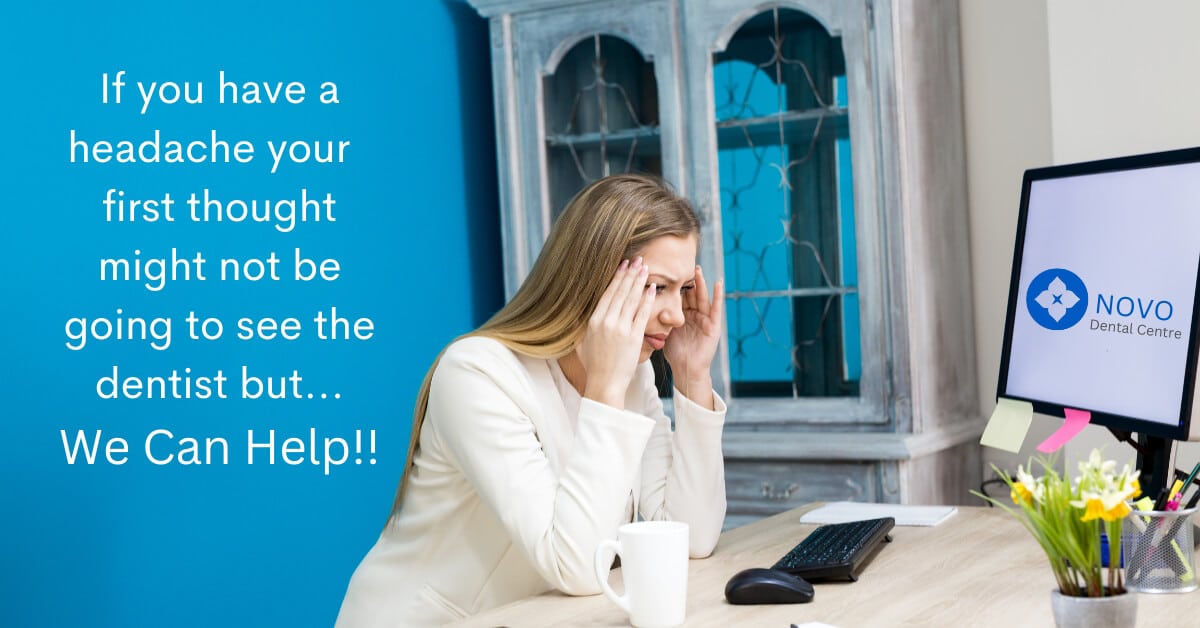Yes, dental health and oral conditions can be a contributing factor to headaches. Here are a few ways in which teeth or oral health issues can cause or worsen headaches:
Tooth Damage:
Any damage to a tooth that exposes sensitive nerve tissue can lead to pain. This pain can sometimes radiate along the trigeminal nerve, which supplies sensation to the face and head, resulting in what feels like a tension headache.
In some cases, tooth damage and the associated nerve pain can trigger migraines, which are severe headaches accompanied by symptoms such as throbbing pain on one side of the head, light or sound sensitivity, nausea, and vomiting. Prompt professional care is important for cracked, broken, or severely worn teeth to prevent infection, improve function, and alleviate pain.
Infections and Abscesses:
A fractured or decayed tooth can become infected, causing pain, fever, and swelling. The infection can also spread to the jaw, leading to the formation of an abscess. Pain from infected tooth tissue can radiate to the face or head, similar to severe damage to the tooth enamel. An abscess in the upper jaw can even trigger sinus infections, resulting in debilitating sinus or migraine headaches. It’s essential to treat toothaches promptly to prevent complications. Root canal therapy and antibiotics may be necessary to save the infected tooth and clear up any surrounding infections, thereby easing related headaches.
Bruxism (Teeth Grinding):
Chronic headaches can be caused by bruxism, which is the unconscious grinding or clenching of teeth, typically occurring during sleep. Emotional stress and misalignment between the upper and lower teeth can strain the jaw muscles, wear down the enamel, and even lead to tooth fractures.
The tooth damage caused by bruxism can transmit nerve pain from the teeth to the face and head. Additionally, the strain on the jaw muscles can cause pain that spreads from these muscles to the head, resulting in tension headaches related to temporomandibular joint (TMJ) issues.
Using a custom night guard fitted by a dentist can help reduce jaw tension and enamel wear, relieving bruxism-related headaches.
Importance Of Dental Health
It’s important to note that while dental health can contribute to headaches, it may not be the only cause. Headaches can have various triggers, and it is recommended to consult with a healthcare professional or dentist for a proper evaluation if you suspect that your headaches may be related to your dental health. They can provide an accurate diagnosis and recommend appropriate treatment options.


